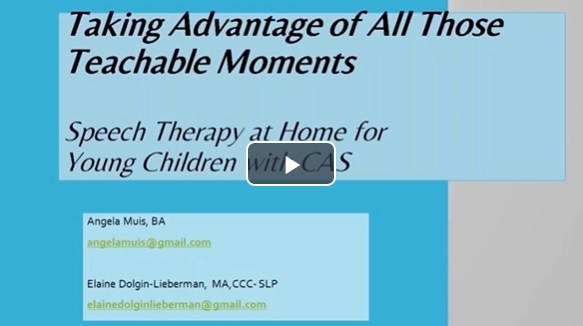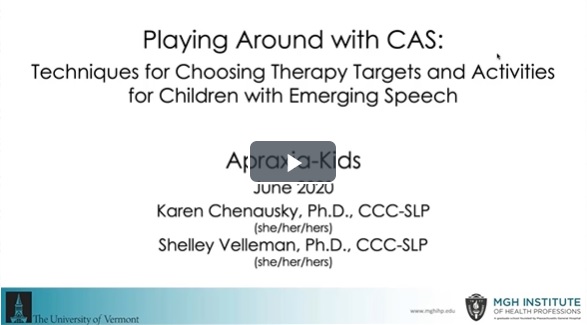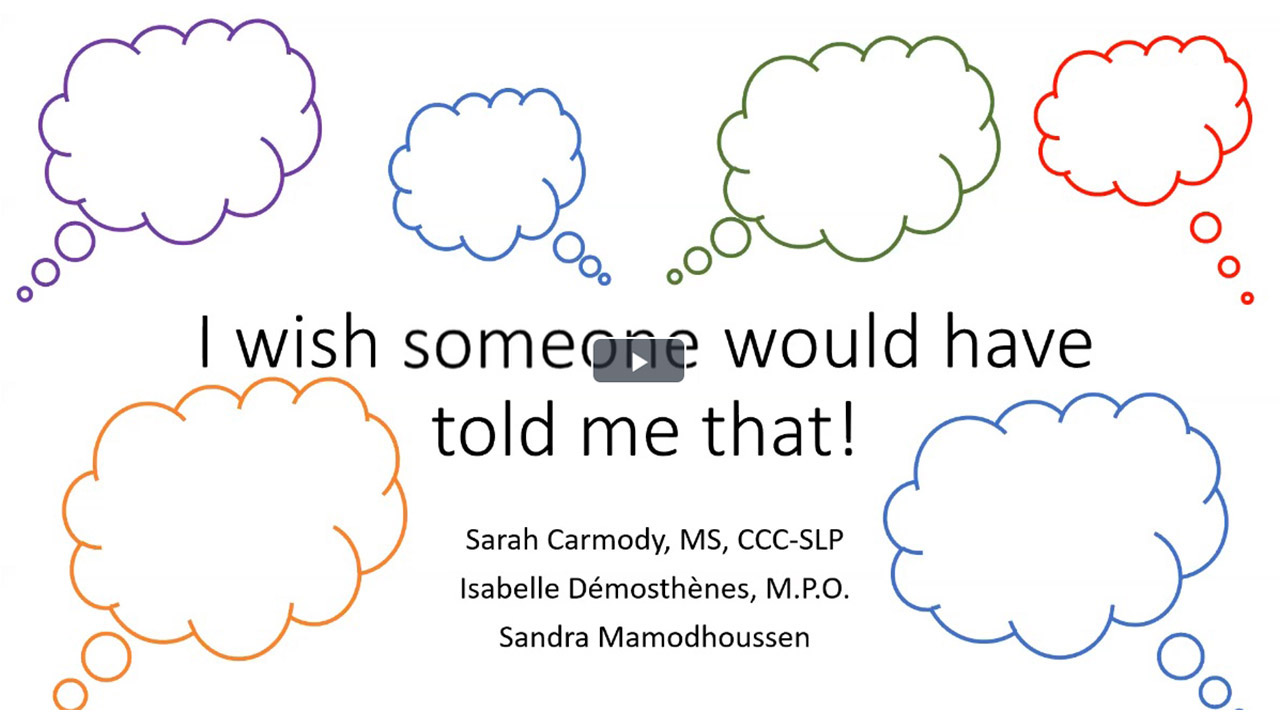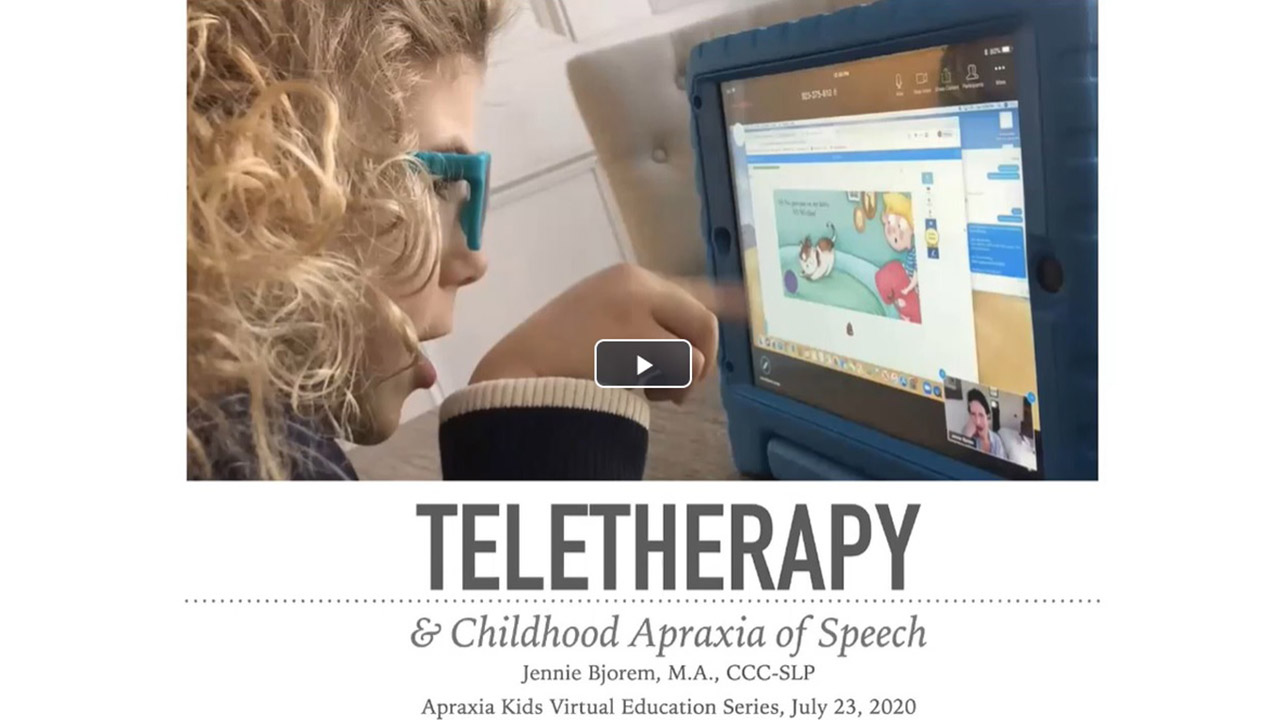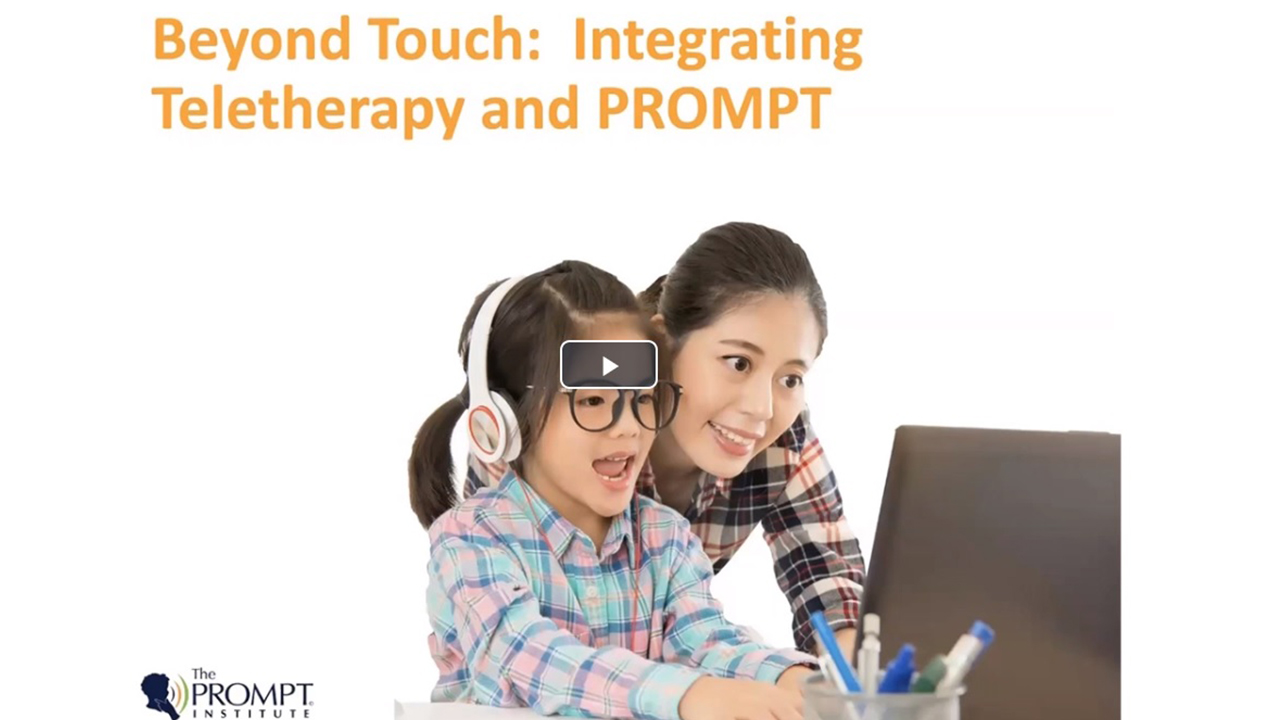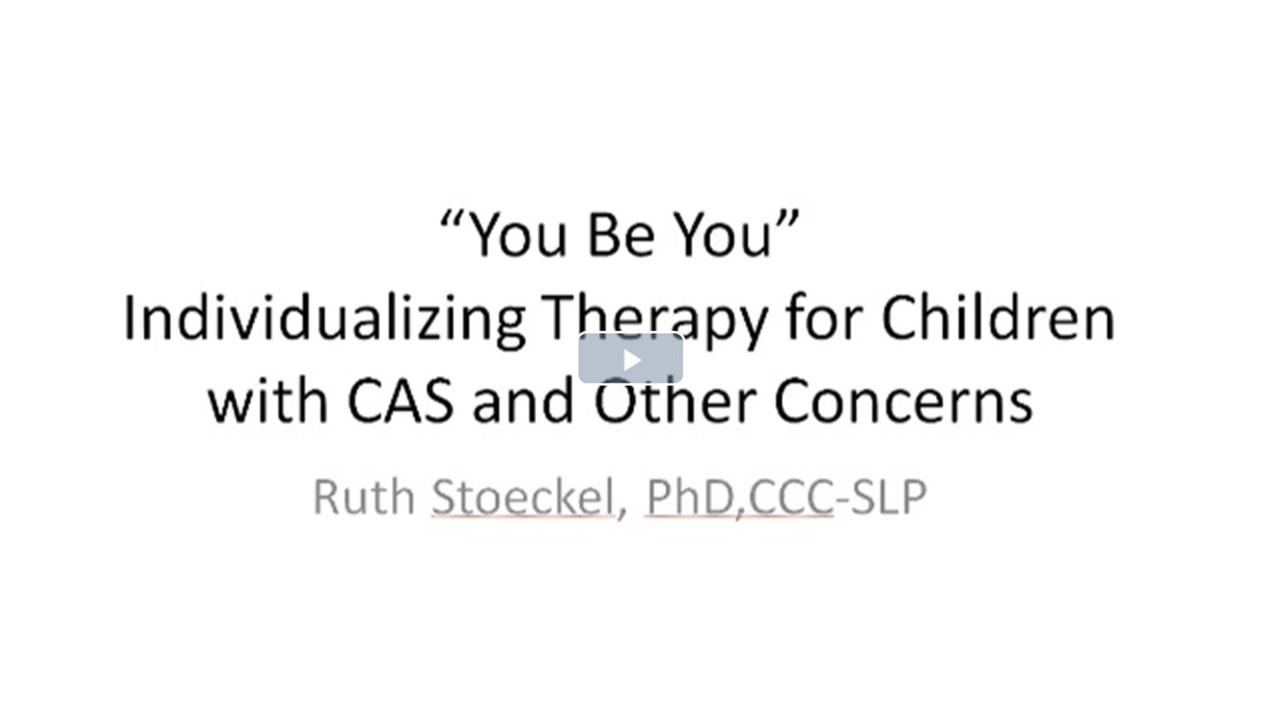Therapy
Taking Advantage of All Those Teachable Moments:
Presented by: Elaine Dolgin-Lieberman, MA, CCC-SLP and Angela Muis, BA, SLP-A
Parents and caregivers are critical to enhancing success for children with childhood apraxia of speech. This webinar by an expert clinician will focus on strategies and activities as part of home practice to improve your child’s rate of progress, provide the opportunity to generalize their targets, and build self-esteem that results from feelings of success and improved speech clarity.
Download Presentation Handouts Here
Download Bibliography Here
Additional Resources
Playing Around with CAS:
Techniques for Choosing Therapy Targets and Activities for Children with Emerging Speech
Presented by: Dr. Karen Chenausky, CCC-SLP and Dr. Shelley Velleman, ASHA Fellow, NAP Fellow
Two seasoned SLPs provide a brief update on developmental progressions in speech, language, play, and social communication skills. Then, they demonstrate the use of a brief checklist to help identify a child’s present levels of speech, language, play, and social skills. Finally, they present a series of principles that therapy targets and activities should adhere to.
Download Presentation Handouts Here
Download Quick Communication Checklist Here
Additional Resources
I Wish Someone Had Told Me That
Recorded on July 15, 2020
Presented by: Sarah Carmody, MS, CCC-SLP, Isabelle Démosthènes, M.P.O. reg. OOAQ, and Sandra Mamodhoussen
This thought inevitably crosses our minds as professionals and families on the therapy journey with CAS. This presentation will focus on lessons learned by two Apraxia Boot Camp graduates and a mom, as we tackle motor speech treatment dilemmas and support the multifaceted needs of children with CAS. As we share some of the tricky questions we’ve encountered like “What should I prioritize?” “How and when should I change my approach?” “Does my child need a break from therapy?” “What can I expect from my child?”, different points of views will be presented by the panelists (parent and therapist, PROMPT and DTTC therapy, Canadian and American system, French/Spanish/English background), and you will be encouraged to add to the discussion through the chat. We hope you depart with practical tools and new insights to help you make informed choices when helping your Apraxia Stars!
Download the handouts for this presentation here.
Additional Resources:
Teletherapy and CAS
Recorded on July, 23 2020
Presented by: Jennie Bjorem, MA, CCC-SLP
SLPs and families alike have been challenged this year with treating children with CAS via teletherapy. What does teletherapy look like, what are the SLPs and parent roles and is it worth our time? How can we make this work with our kids with CAS? We will discuss ways to make teletherapy worthwhile when our options are limited.
Download Presentation Handouts Here.
Additional Resources
Beyond Touch: Integrating Teletherapy and PROMPT
Recorded on Tuesday, July 28, 2020
Presented by: Marcus Neal, MS, CCC-SLP, PCI
The PROMPT technique is primarily known for using touch to help the articulators move for speech production, but it goes way beyond touch! PROMPT-trained SLPs assess and treat individuals holistically by approaching communication as an interaction of the physical-sensory, cognitive-linguistic and social-emotional domains. This presentation will examine how parents and SLPs can integrate PROMPT through teletherapy. Parents and SLPs will investigate the PROMPT assessment/treatment planning program and will be introduced to PROMPT SLP teletherapy tools and parent activities that reinforce therapy throughout the child’s day.
Download Presentation Handouts Here.
You Be You:
Designing Therapy When There is More Than “Just” CAS
Recorded on July 30, 2020
Presented by: Dr. Ruth Stoeckel, CCC-SLP
Many children with CAS have other conditions, ranging from general motor impairment, to genetic conditions like Down Syndrome or 22q11, to neurodevelopmental disorders like autism and learning disorders. The most efficient approach to therapy for children with “CAS+” will involve identifying priorities based on understanding of the whole child, not just their speech disorder. This session by an experienced clinician will discuss how priorities for intervention may be considered, and how motor-based treatment for speech may be integrated into treatment for specific co-occurring conditions. The content of this session will be influenced by survey information collected by Apraxia Kids prior to the presentation.
Click here to download the handouts for this presentation.
Click here to down the references for this presentation.
Additional Resources
Article:
Nancy Kaufman – Co-Existing Factors



